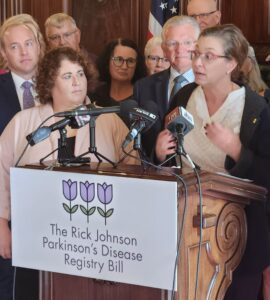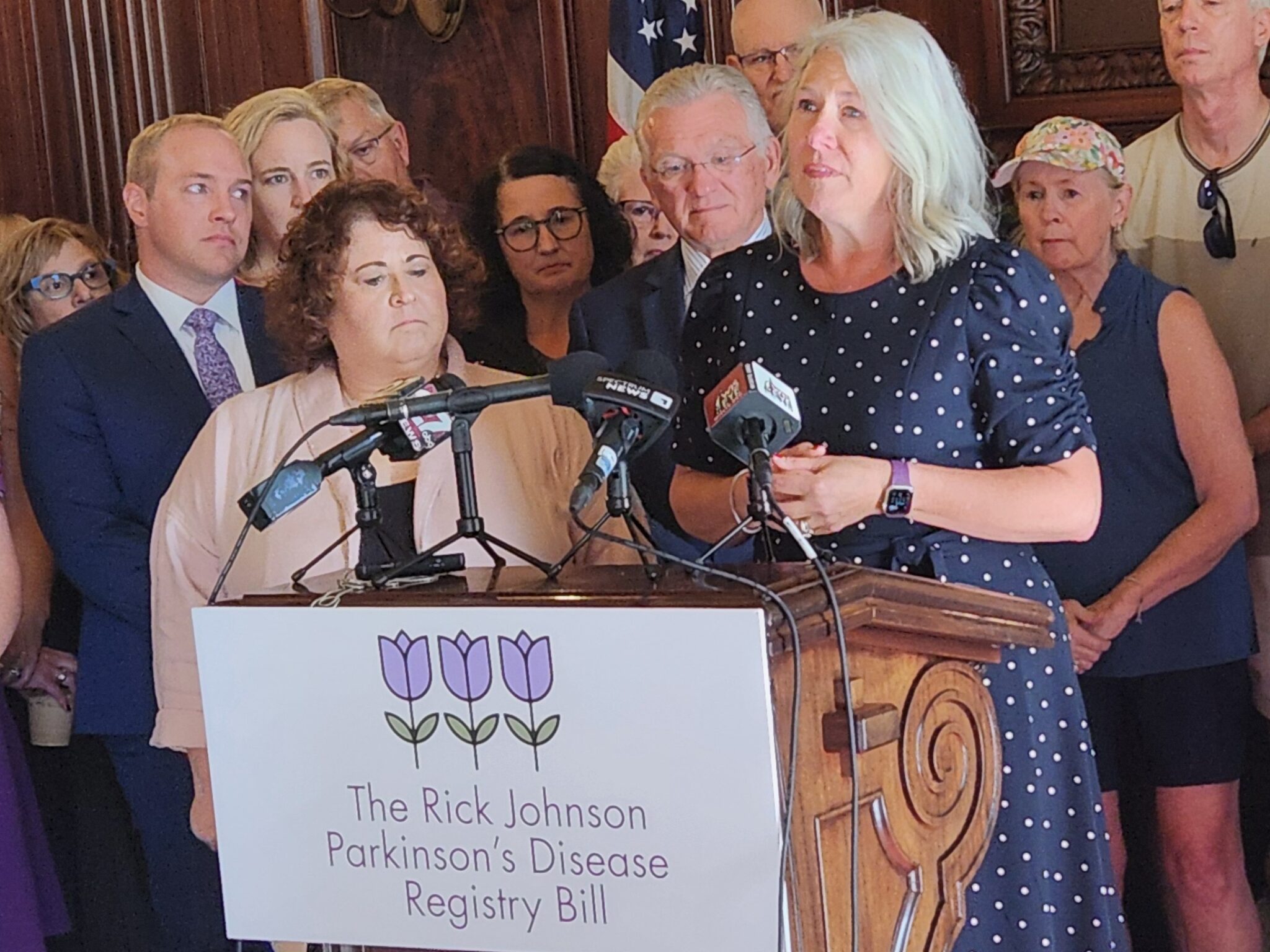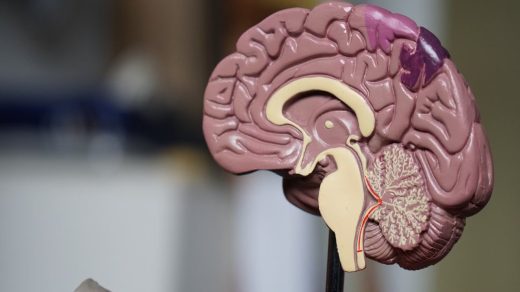A bipartisan group of Wisconsin lawmakers announced legislation Wednesday to create a statewide registry for Parkinson’s Disease.
Parkinson’s, a neurological condition that is characterized by tremors, but also by a variety of other symptoms, has been increasing disproportionately, according to Dr. Brian Nagle, a movement disorder specialist.
“It’s the second most common neurological disease after Alzheimer’s disease, but it’s the fastest growing,” Nagle said in an interview Wednesday.
The speed with which Parkinson’s diagnoses are increasing is outpacing the aging of the population, “which suggests that it’s not just due to our population getting older, but that there may be some sort of risk factor that is causing it to grow more rapidly,” Nagle said.
A statewide registry of Parkinson’s patients could help provide clues about factors, such as environmental conditions, that may be at the root of the illness, he said.

State Sen. Rachael Cabral-Guevara (R-Fox Crossing) and state Rep. Lisa Subeck (D-Madison) began circulating a draft bill Wednesday to create the proposed state registry.
“Right now, when patients and their doctors are looking for answers, we struggle a little bit,” said Cabral-Guevara, who is a nurse practitioner, at a press conference to announce the legislation.
“We simply don’t have the data that we need,” she said. “We don’t know who is infected. Where the disease is hitting the hardest. Are there environmental factors that impact this, that cause this, that make it progress even faster? That lack of the clear picture of this is a barrier.”
The legislation was the brainchild of Stephanie Johnson, director of the Parkinson’s Disease Alliance of Wisconsin. Johnson told reporters Wednesday that her husband, Rick, was diagnosed with Parkinson’s 15 years ago when he was 61. After living with the illness for 13 years, he died in December 2023.
“I think we typically think of Parkinson’s as tremors or shuffling,” Johnson said, “but Rick had dangerously low blood pressure that would cause him to pass out. He had cognitive changes that made it very, very challenging for him to communicate. And he had visual hallucinations and many other non-motor symptoms.”
Johnson said she was also diagnosed with Parkinson’s three months after her husband’s death — a finding that astonished her. Then she learned that in the neighborhood where they had previously lived for 20 years, they were two of six residents who developed Parkinson’s disease, she said.
“And I thought, this can’t be a coincidence,” Johnson said, “And I wondered, is this a disease cluster? I didn’t know.”
“We don’t have a systematic way of tracking the incidence and prevalence of Parkinson’s in Wisconsin,” Johnson said.
The proposed legislation is aimed at filling that gap. The bill’s authors have named it in memory of Johnson’s husband at her request.
Fourteen U.S. states have some form of registry for Parkinson’s Disease, with some tracking other conditions as well, according to the Michael J. Fox foundation, a national research nonprofit named for the TV actor who was diagnosed with Parkinson’s disease when he was 30.
The draft legislation calls for the establishment of a registry at the Department of Population Health Sciences at the University of Wisconsin-Madison School of Medicine and Public Health. The registry would include a website with annual reports on the incidence and prevalence of Parkinson’s Disease in Wisconsin.
Health care providers would file information with the directory about patients they treat for Parkinson’s or closely related conditions. If patients don’t consent for their information to be shared, the incidence would be reported and nothing else, according to the bill.
Parkinson’s Disease is the subject of “a lot of mysteries,” Subeck said. “The reality is we are not going to get closer to curing Parkinson’s unless we do the research, unless we collect the data, and unless we enable that data to be used in meaningful ways.”
GET THE MORNING HEADLINES.
This was shown first on: https://wisconsinexaminer.com/2025/10/02/bipartisan-legislation-would-create-a-wisconsin-registry-for-parkinsons-disease-cases/



